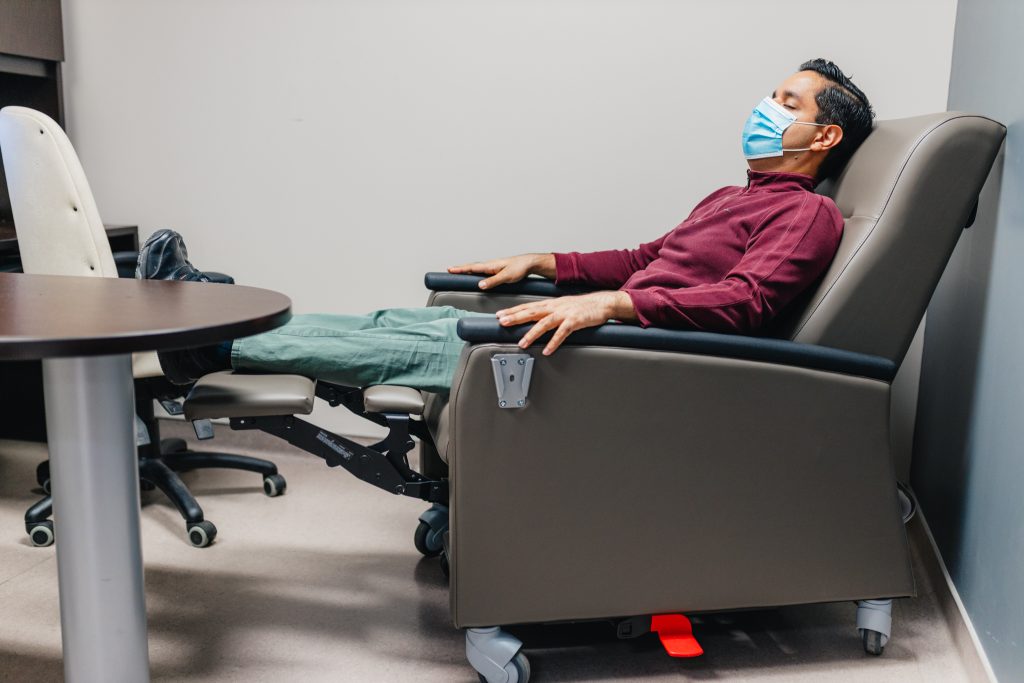
New Year’s Resolution: Sleep Well
Struggling to get a good night’s sleep? The average Canadian gets six hours of sleep a night, while the recommended average is seven to eight hours, says Hamilton Health Sciences clinical pharmacist Vikas Parihar.
Parihar is based at the Michael G. DeGroote Pain Clinic where he teaches a class on managing sleep for patients with chronic pain, but his advice is helpful for anyone wanting a better night’s sleep.
Drop the nap
“If you’re a napper, you may want to consider weaning yourself off this habit. For example, someone who takes two-hour naps may want to cut back their naptime in 30-minute increments. A 15 to 30 minute power nap is still ok, but some people nap two to three hours which is a really bad habit.”

Hamilton Health Sciences clinical pharmacist Vikas Parihar
Parihar encourages people to schedule their bedtime, allowing for seven to eight hours of sleep. This also applies to shift workers with non-traditional hours.
“For some people, falling asleep is more challenging than staying asleep. To help fall asleep faster, avoid doing the following near bedtime: Watching exciting television shows, using electronic devices, drinking caffeine or alcohol, and doing intense exercise. Deep breathing and meditation can help relax the mind if troublesome thoughts are common when you shut your eyes.”
Use deep breathing, music or sleep apps
“There are a number of sleep apps available to help calm the mind through deep breathing practices, music and meditation. It can be very helpful to focus on something mundane, Those still struggling may want to talk to their family doctor or nurse practitioner. Prescription medication can help, but some medications can be habit-forming so it’s important to have a conversation with your health care provider. In some cases, medications have also been linked to delirium and falls.”
Personal resolution: self-care
Parihar says he’s happy enough with his own sleep habits but wants to focus on other aspects of his own health.
“People in health care can be so busy caring for others that self-care can sometimes take a backseat. My personal resolution is to take care of myself so that I can provide the very best care to our patients.”


